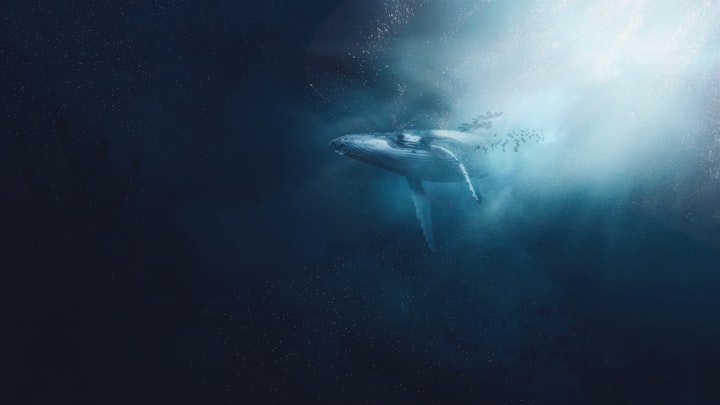
Whales: The Majestic Giants of the Ocean
Whales are the largest mammals on earth, with some species growing to be over 100 feet in length and weighing more than 200 tons. These majestic giants of the ocean are beloved by many people around the world for their grace, beauty, and awe-inspiring presence. But there is much more to these incredible creatures than their impressive size and appearance.
Whales are members of the cetacean family, which also includes dolphins and porpoises. They are divided into two main groups: baleen whales and toothed whales. Baleen whales, such as humpback whales and blue whales, have comb-like structures in their mouths that they use to filter small fish and plankton from the water. Toothed whales, such as killer whales and sperm whales, have teeth and hunt for larger prey like squid and fish.
Whales are found in all of the world's oceans, from the Arctic to the Antarctic, and they play an important role in the ocean ecosystem. They help to regulate the populations of their prey species, and they also help to redistribute nutrients through their waste and carcasses. In addition, whales are important to many cultures around the world, where they have been revered and celebrated for centuries.
Unfortunately, whales have also been the target of commercial hunting for centuries, which has severely depleted their populations. Many species of whales were hunted almost to extinction in the 19th and 20th centuries, and several are still listed as endangered or threatened today. However, there have been significant efforts in recent years to protect and conserve whale populations, including bans on commercial whaling and the establishment of marine sanctuaries.
One of the most famous and beloved species of whale is the humpback whale. These whales are known for their long, complex songs, which can last for up to 20 minutes and are thought to be a form of communication between individuals. Humpback whales are also known for their acrobatic displays, which include breaching (jumping out of the water) and tail slapping.
Another iconic species of whale is the blue whale, which is the largest animal on earth. Blue whales can grow to be up to 100 feet in length and weigh more than 200 tons. These incredible creatures are known for their deep, haunting vocalizations, which can be heard for miles underwater. They are also known for their unique feeding behavior, which involves opening their massive mouths and taking in huge amounts of water and prey.
Sperm whales are another fascinating species of whale. These whales are known for their massive heads, which contain a substance called spermaceti that was once highly valued for its use in candles and lubricants. Sperm whales are also known for their incredible diving abilities, which allow them to reach depths of up to 3,000 meters in search of their prey.
In addition to their physical attributes and behaviors, whales are also known for their complex social structures and intelligence. Many species of whale live in close-knit family groups, and some have been observed exhibiting behaviors that suggest they have a high level of intelligence and self-awareness. For example, some species of whale have been observed using tools, such as using a sponge to protect their sensitive noses while foraging for food.
Despite their many fascinating qualities, whales face numerous threats in today's world. Climate change, pollution, and overfishing all pose significant risks to whale populations, and many species are still recovering from the damage done by decades of commercial hunting. However, there is hope for the future of these incredible creatures. With continued conservation efforts and increased public awareness, we can work to protect and preserve the world's whale populations for generations to come.
In conclusion,
Whales are magnificent creatures that play an important role in the ocean ecosystem and have been revered by humans for centuries. Despite their impressive size and beauty, whales have faced significant threats from commercial hunting, pollution, and climate change. However, through conservation efforts and increased public awareness, we can work to protect and preserve these amazing animals for future generations to enjoy. Let us all continue to appreciate and respect the majestic giants of the ocean, and do our part to ensure their survival.






Comments
There are no comments for this story
Be the first to respond and start the conversation.